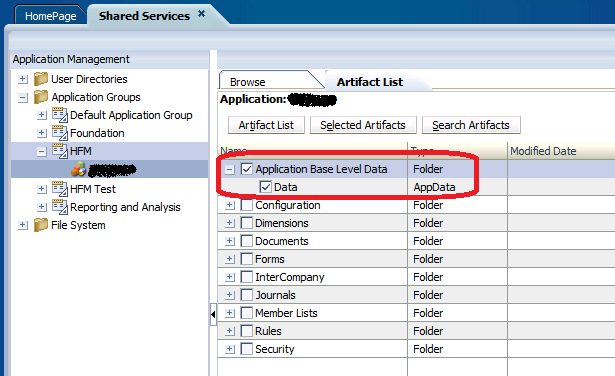As many of you may already have heard, the Oracle EPM release 11.1.2.4 was made available on Oracle Technology Network earlier this week. Social media has been abuzz with activity since and many bloggers have already written posts about all the new features. Instead of making another set of installation screenshots I wanted to take a closer look at Hyperion Financial Management as HFM is the product that has gone through most changes in this version.
Friday, January 30, 2015
Say Hello To HFM 11.1.2.4
Labels:
11.1.2.4
,
hfm
,
internet explorer
,
log
,
new features
,
process
,
release
,
snapshot
,
utility
Tuesday, January 13, 2015
Oracle EPM, IE11 and Enterprise Mode Explained
The following message and the Bindows information page are familiar to those who have attempted to use current Oracle EPM versions with Internet Explorer 11. In August last year Oracle published an article stating that use of Internet Explorer 11 is now supported with EPM versions 11.1.2.2 and 11.1.2.3 as long as you use Enterprise Mode in the browser. In this post I will explain what Enterprise Mode is and how you can enable it for your EPM environment.
Note that later EPM releases 11.1.2.3.700 and 11.1.2.4 are tested and certified with IE11 and they do not require Enterprise Mode to be configured in the browser.
Note that later EPM releases 11.1.2.3.700 and 11.1.2.4 are tested and certified with IE11 and they do not require Enterprise Mode to be configured in the browser.
Labels:
11.1.2.2
,
11.1.2.3
,
browser
,
internet explorer
Thursday, January 8, 2015
HFM Base Level Data Extracts Via LCM
Starting with EPM 11.1.2.3 it is now possible to extract base level data from HFM applications using LCM. This is a handy way to back up your level 0 data without using third-party tools.
There is one requirement for this functionality that is easy to overlook in distributed environments though. (excerpt from the EPM System Lifecycle Management Guide)
If you have a two-server setup with web components installed on machine called "WebServer" and HFM application server components on "AppServer" you will need to make a small change to the default Foundation Services configuration.
Some notes about the way the extract process works (may be useful for troubleshooting):
There is one requirement for this functionality that is easy to overlook in distributed environments though. (excerpt from the EPM System Lifecycle Management Guide)
In order to export or import Financial Management Data artifacts in a distributed EPM installation, Lifecycle Management must have a shared file system path. The domain account that has access to this shared/disk folder should be used to start services. Configure hfmLcmServiceAppPool(IIS) with this domain account.
If you have a two-server setup with web components installed on machine called "WebServer" and HFM application server components on "AppServer" you will need to make a small change to the default Foundation Services configuration.
- Share the default import_export folder (usually looks like D:\Oracle\Middleware\user_projects\epmsystem1\import_export) so that the share is writable by local Administrators and by the HFM DCOM account (also verify the file system permissions)
- Stop all EPM services
- Use EPM System Configurator to modify the LCM import/export path to point to the shared folder (in my example \\webserver\import_export). After finishing the task in Config Utility you can verify the change by running EPM System Registry Editor from the Start menu and by searching for "filesystem.artifact.path". Note that in case the share is created locally you shouldn't need to change the login user for the Windows service that starts Foundation Services.
- Start up EPM services and test that LCM is still able to read and write to the import/export folder.
- Finally start a base level data extract from HFM to verify that the configuration is working. The data extract should appear as a gzip file in \\webserver\import_export\HFM data extract\HFM-APPNAME\resource\Application Base Level Data. You can open the file using a third-party tool such as 7-zip.
Some notes about the way the extract process works (may be useful for troubleshooting):
- Data is initially extracted to the HFM working folder on the application server (for example D:\Oracle\Middleware\user_projects\epmsystem2\products\FinancialManagement\Server Working Folder\AppServerName_WorkingData_APPNAME) - this is done by the hsvdatasource.exe process
- Hsvdatasource.exe copies the produced data file from the working folder directly to the LCM import/export folder defined in HSS Registry. This is why the modification described above is needed.
- Some of the metadata files used in the process are transferred via the HFM FileTransfer folder (e.g. D:\Oracle\Middleware\user_projects\epmsystem1\products\FinancialManagement\Web\FileTransferData on the web server). Make sure the IIS application pools have write access to this directory.
- The following error appears in HsvEventLog.log on the application server if the import/export folder is not properly configured as a share: "An unknown error occurred - Param: D:/Oracle/Middleware/user_projects/epmsystem1/import_export/MyExportFolderName/HFM-APPNAME/resource/Application Base Level Data/Data.gz."
- The following error is produced in Foundation Services log file SharedServices_LCM.log if the import/export folder is not properly configured as a share: "[FoundationServices0] [ERROR] [EPMLCM-30034] [oracle.EPMLCM] [tid: 176] [userId: <anonymous>] [ecid: 00iQfXqUa0zFw00Fzzw0w00001ZS000ZAL,0:1:4:3:4:3:4:3:1:1:1:1] [APP: SHAREDSERVICES#11.1.2.0] [URI: /workspace/logon] [SRC_CLASS: com.hyperion.lcm.product.manager.WebServiceProductManager] [SRC_METHOD: exportArtifacts:717] Failed in communicating to Hyperion Financial Management remote service at URL "http://webserver:80/hfmlcmservice/LCMWS.asmx" during "export" operation for application name "APPNAME" and cluster name "HFMCLUSTR". Nested exception is [[ org.apache.axis2.AxisFault: javax.xml.stream.XMLStreamException: Premature end of file encountered"
Labels:
11.1.2.3
,
configuration
,
hfm
,
lcm
Subscribe to:
Comments
(
Atom
)










